A New Year And New History Books To Enjoy In It. Here are a few of the history books coming out in the new year that we are looking forward to.
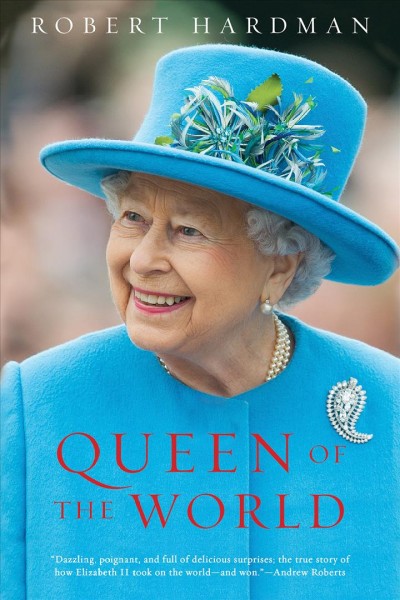 Queen of the World: Elizabeth II: Sovereign and Stateswoman. by Robert Hardman
Queen of the World: Elizabeth II: Sovereign and Stateswoman. by Robert Hardman
On today’s world stage, there is one leader who stands apart from the rest. Queen Elizabeth II has seen more of the planet and its people than any other head of state and has engaged with the world like no other monarch in modern history.
The iconic monarch never ventured further than the Isle of Wight until the age of 20 but since then has now visited over 130 countries across the globe in the line of duty, acting as diplomat, hostess and dignitary as the world stage as changed beyond recognition. It is a story full of drama, intrigue, exotic and sometimes dangerous destinations, heroes, rogues, pomp and glamour, but at the heart of it all a woman who’s won the hearts of the world.
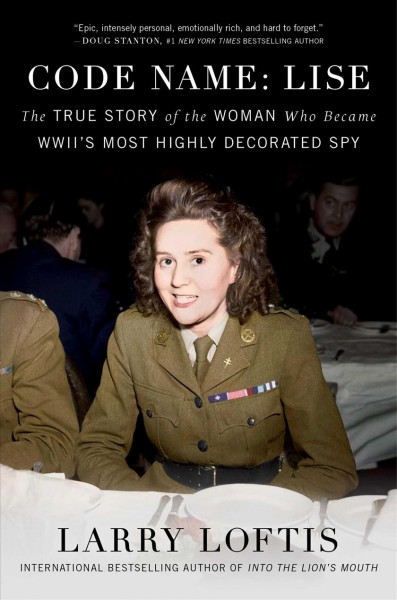 Code Name: Lise, The True Story of the Woman Who Became World War II’s Most Highly Decorated Spy by Larry Loftis.
Code Name: Lise, The True Story of the Woman Who Became World War II’s Most Highly Decorated Spy by Larry Loftis.
The year is 1942, and World War II is in full swing. Odette Sansom decides to follow in her war hero father’s footsteps by becoming an SOE agent to aid Britain and her beloved homeland, France. Five failed attempts and one plane crash later, she finally lands in occupied France to begin her mission. It is here that she meets her commanding officer Captain Peter Churchill.
As they successfully complete mission after mission, Peter and Odette fall in love. All the while, they are being hunted by the cunning German secret police sergeant, Hugo Bleicher, who finally succeeds in capturing them. They are sent to Paris’s Fresnes prison, and from there to concentration camps in Germany where they are starved, beaten, and tortured. But in the face of despair, they never give up hope, their love for each other, or the whereabouts of their colleagues.
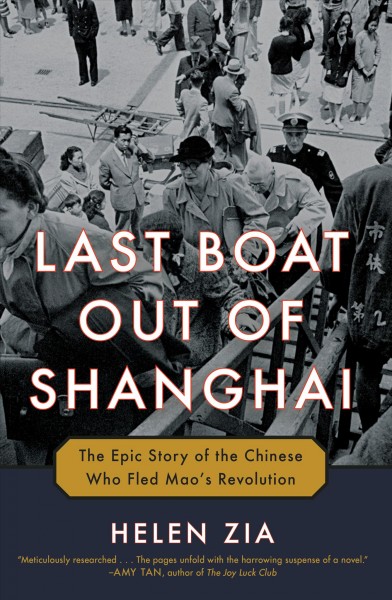 Last Boat Out of Shanghai: The Epic Story of the Chinese Who Fled Mao’s Revolution by Helen Zia
Last Boat Out of Shanghai: The Epic Story of the Chinese Who Fled Mao’s Revolution by Helen Zia
Shanghai has historically been China’s jewel, its richest, most modern and westernized city. The bustling metropolis was home to sophisticated intellectuals, entrepreneurs, and a thriving middle class when Mao’s proletarian revolution emerged victorious from the long civil war. Terrified of the horrors the Communists would wreak upon their lives, citizens of Shanghai who could afford to fled in every direction. Seventy years later, members of the last generation to fully recall this massive exodus have revealed their stories to Chinese American journalist Helen Zia, who interviewed hundreds of exiles about their journey through one of the most tumultuous events of the twentieth century. From these moving accounts, Zia weaves together the stories of four young Shanghai residents who wrestled with the decision to abandon everything for an uncertain life as refugees in Hong Kong, Taiwan, and the United States.
Benny, who as a teenager became the unwilling heir to his father’s dark wartime legacy, must decide either to escape to Hong Kong or navigate the intricacies of a newly Communist China. The resolute Annuo, forced to flee her home with her father, a defeated Nationalist official, becomes an unwelcome exile in Taiwan. The financially strapped Ho fights deportation from the U.S. in order to continue his studies while his family struggles at home. And Bing, given away by her poor parents, faces the prospect of a new life among strangers in America. The lives of these men and women are marvelously portrayed, revealing the dignity and triumph of personal survival.
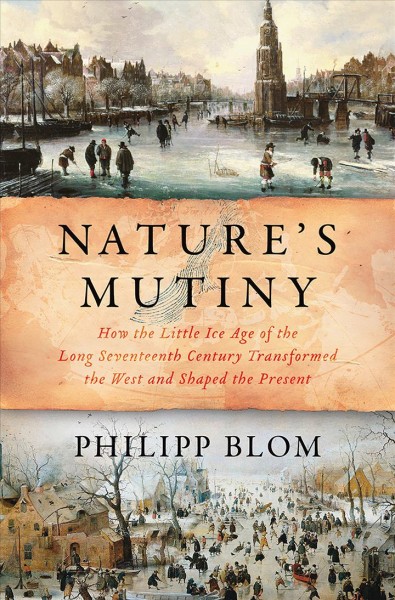 Nature’s Mutiny: How the Little Ice Age of the Long Seventeenth Century Transformed the West and Shaped the Present by Philipp Blom
Nature’s Mutiny: How the Little Ice Age of the Long Seventeenth Century Transformed the West and Shaped the Present by Philipp Blom
Although hints of a crisis appeared as early as the 1570s, the temperature by the end of the sixteenth century plummeted so drastically that Mediterranean harbors were covered with ice, birds literally dropped out of the sky, and “frost fairs” were erected on a frozen Thames—with kiosks, taverns, and even brothels that become a semi-permanent part of the city.
Recounting the deep legacy and far-ranging consequences of this “Little Ice Age,” acclaimed historian Philipp Blom reveals how the European landscape had suddenly, but ineradicably, changed by the mid-seventeenth century. While apocalyptic weather patterns destroyed entire harvests and incited mass migrations, they gave rise to the growth of European cities, the emergence of early capitalism, and the vigorous stirrings of the Enlightenment. A timely examination of how a society responds to profound and unexpected change, Nature’s Mutiny will transform the way we think about climate change in the twenty-first century and beyond.
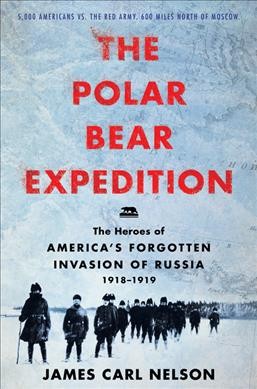 The Polar Bear Expedition: The Heroes of America’s Forgotten Invasion of Russia, 1918-1919 by James Carl Nelson
The Polar Bear Expedition: The Heroes of America’s Forgotten Invasion of Russia, 1918-1919 by James Carl Nelson
In August 1918, the 339th regiment of the U.S. Army—roughly 5,000 soldiers, most hailing from Michigan—sailed for Europe to fight in World War I. But instead of the Western Front, these troops were headed to Archangel, Russia, a vital port city 1,000 miles northeast of Moscow. There, in the frozen subarctic, amid the chaos of the Russian Civil War, one of the most extraordinary episodes of American history unfolded.
The American North Russia Expeditionary Force—self-dubbed “The Polar Bear Expedition”—was sent to fight the Red Army and aid anti-Bolshevik forces in hopes of re-opening the Eastern Front against Germany. On the 100th anniversary of the campaign, award-winning historian James Carl Nelson recreates this harrowing, dramatic military operation in which Americans and Bolsheviks fought a series of pitched battles throughout a punishing fall and winter.
